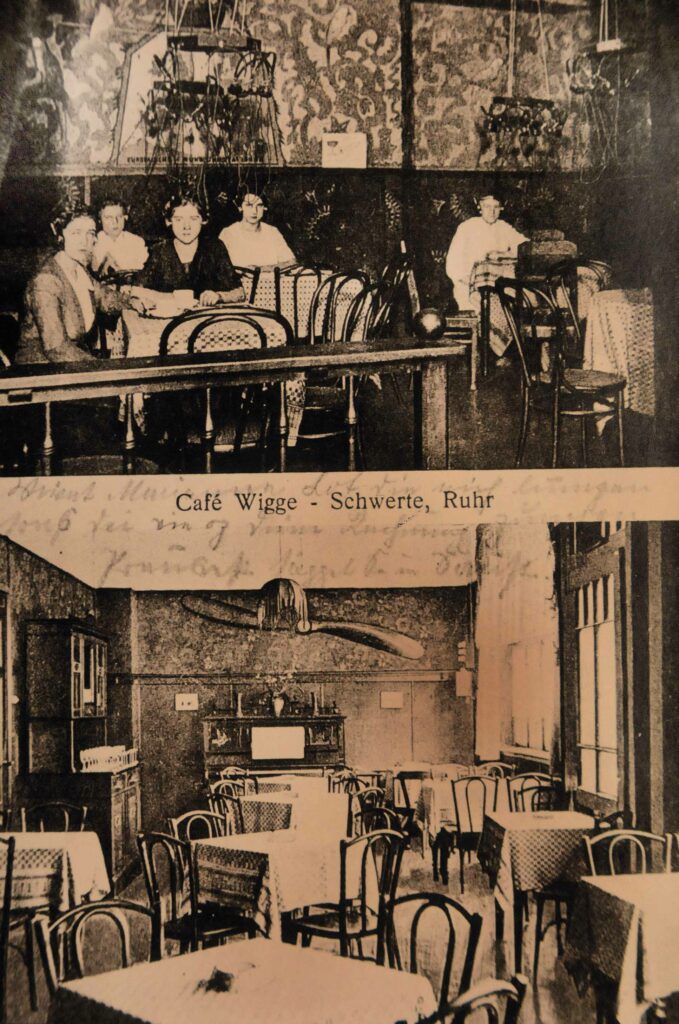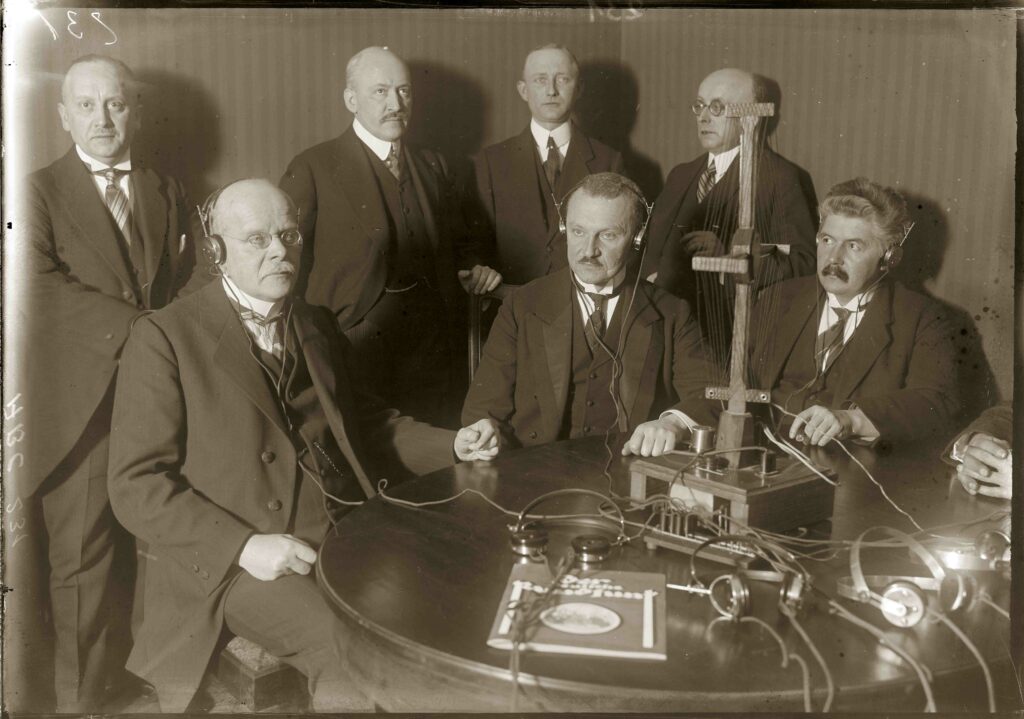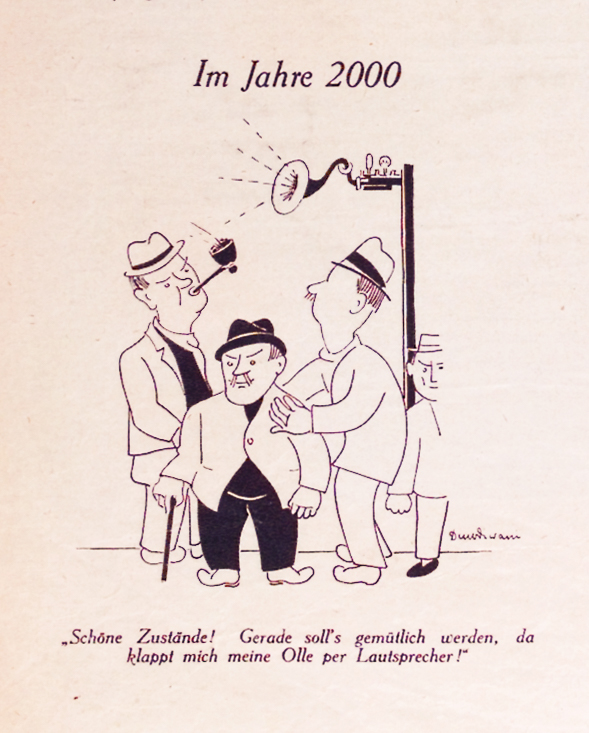The Triumph of Radio
The broadcast of the first entertainment program from the Vox House in Berlin on October 29, 1923, is considered to be the birth of German radio. Only one month prior, on September 19, 1923, Dr. Hans Bredow (1879–1959), State Secretary for Telegraph, Telephony and Radio, had commissioned Friedrich Weichart (1893–1979), Post Director of the Telegraph Technical Reich Office (TRA), to set up a transmitter.
By early 1924 there were already 1580 paying radio subscribers in Germany.
Der Siegeszug des Radios
The broadcast of the first entertainment program from the Vox House in Berlin on October 29, 1923, is considered to be the birth of German radio. Only one month prior, on September 19, 1923, Dr. Hans Bredow (1879–1959), State Secretary for Telegraph, Telephony and Radio, had commissioned Friedrich Weichart (1893–1979), Post Director of the Telegraph Technical Reich Office (TRA), to set up a transmitter.
By early 1924 there were already 1580 paying radio subscribers in Germany.
Weichart remembers the first broadcast:
“Attention, attention, this is Berlin on Wave 400 m” sounded throughout the room. And then Otto Urack played some pieces on the cello, including “Träumerei” by Schumann, Rudolf Deman mastered the violin and the tenor Alfred Wilde recited a number of arias. In between came gramophone records, at that time still without the electric ‘pickup’. At the end of the performance and after the Deutschlandlied (also a record reproduction!), it was announced: “We wish you a good night! Please don’t forget to ground the antenna.’”
already possible
“Tell me – I keep hearing humming – is this perhaps part of the lecture on ‘beekeeping?” – “No, the lecture is not on yet. Either it’s the overture of the latest opera, or the operator at the broadcasting station has buzzing in his ears!”
At first, listening to the radio was a low quality experience only possible with headphones. Because radio was a new medium and still foreign to people, it caused all kinds of confusion.
In the Year 2000
“Beautiful conditions! Just as I’m getting comfortable, my ol’ pal folds me using the loudspeaker!”
From 1926 on, tube sets with their own power supply and loudspeakers gradually became widespread. In his commentary on the development of public listening, it almost seems as if the cartoonist Duwdiwani anticipated something like our ubiquitous accessibility in the age of the smartphone, almost exactly to the year.
musical enjoyment in the Café
Master baker Anton Wigge (1888–1975) acquired one of the first radio listening licenses in Schwerte an der Ruhr in 1924. He equipped his café with 50 headphones, all o which dangled from the ceiling on wires.

Konrad Dussel: Deutsche Rundfunkgeschichte. Eine Einführung. 3. überarb. Aufl. Konstanz 2010.
Joachim-Felix Leonhard: Programmgeschichte des Hörfunks in der Weimarer Republik. München 1997.
Inge Marßolek/Adelheid von Saldern (Hg.): Radiozeiten. Herrschaft, Alltag, Gesellschaft (1924–1960). Potsdam 1999.
Bremer Rundfunkmuseum.
Online: www.bremer-rundfunkmuseum.de
Sender- und Funktechnikmuseum Rundfunkstadt Königs Wusterhausen
Online: https://museum.funkerberg.de/museum/


